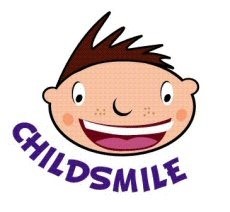More information about dental care and treatment
On this page
More useful guidance from the NHS, Mygov.scot and dental organisations.
Important: NHS inform dental information

NHS inform has more information on dental services including:
- receiving NHS dental treatment in Scotland
- NHS general dental services
- dental emergencies
- accessing orthodontics
Useful websites
Mygov.scot has more information on dental services - how to register with a dentist and what to expect as an NHS dental patient, including:
- how to find an NHS dentist
- what treatment can I get as a registered NHS patient?
- what you need to do as a patient
- what you can expect from your dentist
- emergencies
- changing dentists
Know Who To Turn To for the right medical assistance when you're ill, injured or have a long term condition.
The British Dental Association website contains oral health information for dentists and dental care professionals, students, the media and the public.
Scottish Dental provides accessible information on dentistry for the public and oral health professionals in Scotland.
The Oral Health Foundation is the leading UK-based independent charity working to bring about improved standards of oral health care. The website contains all the relevant information on oral hygiene for professionals, press and public.
The General Dental Council regulates dental professionals in the UK. The site includes work details, news, publications and events. It also has a useful search tool for registered dentists and dental professionals.
Oral health advice from Childsmile
Childsmile is a programme to improve the dental health of children in Scotland. The site contains information and oral health tips for parents, nursery staff and health professionals.
- Reduce the amount and especially the frequency of food and drinks containing sugar. Try to keep food and drink containing sugar as part of a meal. Snack on healthier options: toast, fruit, veg sticks or a sandwich.
- Brush teeth and gums twice every day with a fluoride toothpaste. Brush in the morning and last thing at night. Older children and adults should use around 1450ppm fluoride toothpaste, younger children 1000ppm fluoride toothpaste. Older children and adults should include daily flossing with their toothbrushing routine.
- Spit don’t rinse. Try not to rinse after brushing and let your toothpaste help keep teeth strong.
- Register with a dental practice and attend regularly.

Dental services
-
Getting help with a dental problem
Are you worried about persistent mouth, tooth or gum problems?
-
Registering with a dental practice
Registration with a dentist for NHS services in the NHS Highland area.
-
Dental practices
Dentists (dental practitioners) in NHS Highland.
-
Dental helpline and emergency dental treatment
Contact phone numbers for the dental helpline and out-of-hours emergency dental services.
-
Deregistered NHS dental patients
Frequently asked questions for deregistered NHS dental patients.
-
Changes to NHS dental treatment from November 2023
You may have heard about changes to NHS dental care and treatment in Scotland. What isn’t changing is that you can st...
-
More information about dental care and treatment
More useful guidance from the NHS, Mygov.scot and dental organisations.
